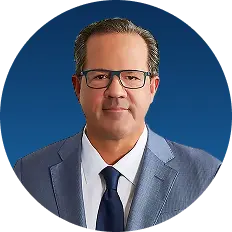ORLANDO PERSONAL INJURY LAWYER
Were you injured in an accident in Orlando, Florida? Are you unsure of your options for recovering compensation? If so, call Payer Law Personal Injury Lawyers at (407) 648-1510 for help.
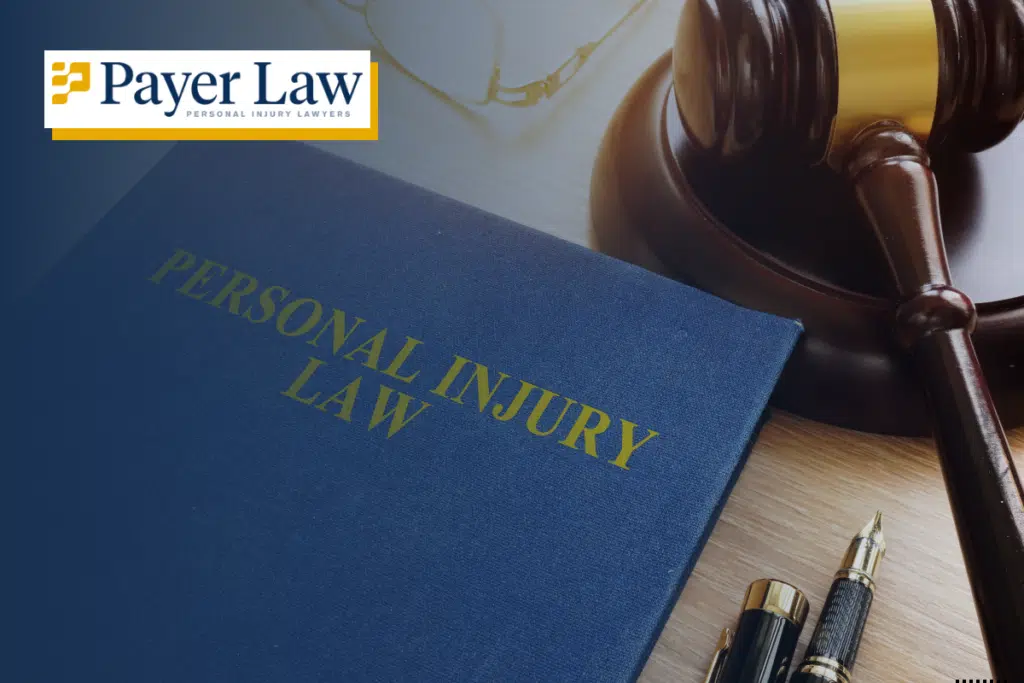
Home » Orlando Personal Injury Lawyer
Reviewed by: James D. Payer
Since our opening, our Orlando personal injury lawyers have been representing victims in Florida. We’ve recovered over $100 million in settlements and verdicts.
We apply an aggressive, hands-on approach to each and every case we handle from the moment the client signs the retainer all the way through trial. We are here to help you hold insurance companies and other defendants liable for the damages they have caused.
Reach out to our office today to schedule a free case evaluation to discuss your case.
Table of Contents
- Why Choose Payer Law To Handle My Orlando Personal Injury Case?
- Why Should I Hire an Orlando Personal Injury Attorney?
- You Need Time To Focus On Getting Better
- We Are Respected in the Legal Community.
- Injury Attorneys in Orlando You Can Trust
- We Handle All Types of Personal Injury Cases in Orlando
- Client Reviews
- Local Firm. Big Results.
- Personal Injury FAQs
- Call Our Orlando Personal Injury Lawyers For Help
Why Choose Payer Law To Handle My Orlando Personal Injury Case?
01. 28+ years of experience.
02. $100+ million recovered.
03. 100+ 5-Star reviews on Google.
04. Membership in elite legal organizations.
05. Local injury firm.
06. Personalized service in every case.
Why Should I Hire an Orlando Personal Injury Attorney?
We Will Stand Up For You
Legal representation will level the playing field. Insurance companies have vast resources to fight, undervalue, and deny claims. An attorney will stand up for your right to a fair financial outcome.
You Deserve an Expert in Your Corner
Most personal injury attorneys have built working relationships with experts in all relevant fields. If your case involves complex issues or you have future damages that must be calculated, your attorney will know who to call for help.
Insurance Companies Will Try To Blame You
The insurance adjuster may try to blame you for your accident. If they successfully shift blame to you, they’ll owe you less money – or nothing at all. A lawyer will push back against allegations of shared fault and make them prove their allegations.
You Need Time To Focus On Getting Better
Having an attorney handle your case will give you much-needed time to rest and heal. They’ll address the legal issues while you focus on your physical and emotional healing.
We Will Stand Up For You
- $27.56 Million Car Accident
- $10.00 Million Leg Amputation
- $3.10 Million Personal Injury
- $2.25 Million Brain Injury
- $2.00 Million Personal Injury
We Are Respected in the Legal Community.
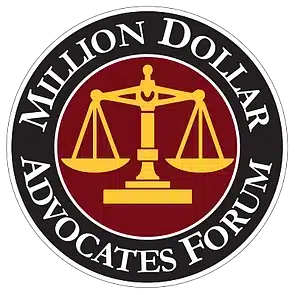
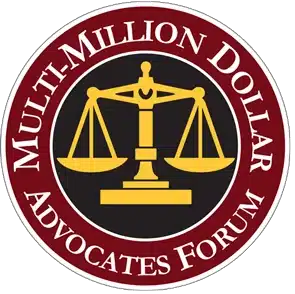




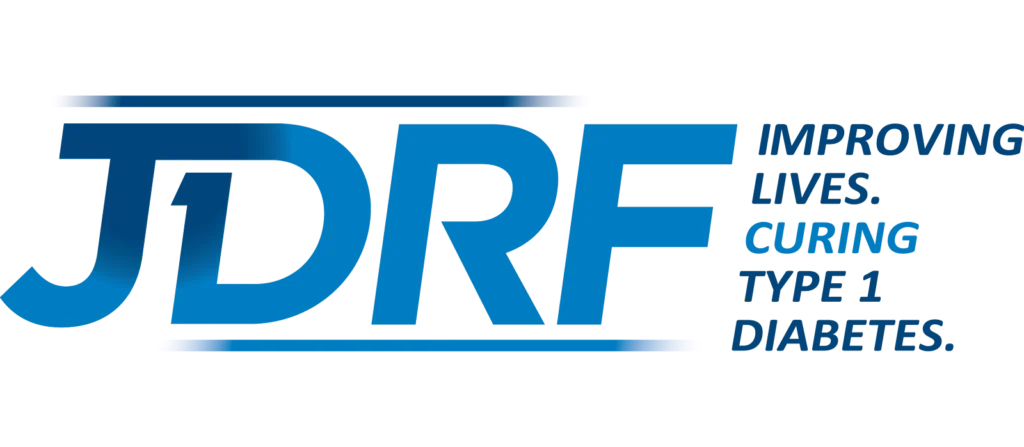
Injury Attorneys in Orlando You Can Trust
Payer Law will stand by your side throughout your case.
At Payer Law, we understand that our clients are going through one of the most difficult experiences of their lives. That’s why we strive to treat our clients like family. Indeed, we provide personalized service to every client.
You’ll never be just another case number at our law firm. We will listen to your story and hold your hand through the entire personal injury claim process. We will be available to take your calls and answer your questions.
Most importantly, we will do everything in our power to get you the compensation you deserve after your injury to help you move forward and take care of yourself and your family.
Call an experienced Orlando personal injury lawyer at our firm to get started. We have a proven track record of success handling all types of cases including motor-vehicle accidents, product liability, medical malpractice cases, and more.
We Handle All Types of Personal Injury Cases in Orlando
Bicycle Accidents
Orlando has made significant investments in bike infrastructure and has been recognized for its efforts. However, that doesn’t mean bicyclists are immune from accidents.
Our bicycle accident attorneys can help you secure a fair financial recovery if you were hurt.
Car Accidents
Each year, Orange County accounts for around 7% of the state’s total motor vehicle accidents. While this may not seem like a high percentage, it amounts to tens of thousands of crashes annually.
If you were hurt in a motor vehicle accident, our Orlando car accident attorneys can help you pursue compensation. We will identify every avenue for recovery, including insurance company claims and personal injury cases.
Motorcycle Accidents
Motorcyclists are vulnerable road users because they lack protection in the event of a crash. A helmet and protective gear can only do so much when accidents occur.
Our Orlando motorcycle accident attorneys will work to hold all liable individuals responsible for your losses. We will fight for compensation for your future healthcare needs and other hard-to-value damages.
Pedestrian Accidents
Orlando isn’t the most walkable city and consistently ranks as one of the worst metro areas for pedestrians. It’s also one of the deadliest places to walk.
If you were struck by a car while walking, our pedestrian accident attorneys can take on your legal battle.
Truck Accidents
Accident cases involving semi-trucks and large commercial vehicles can become complicated quickly. These matters tend to involve multiple parties and extensive insurance policies.
Our Orlando truck accident attorneys will work to hold the trucker, trucking company, cargo loader, or any other party accountable for your harm.
Uber Accidents
Rideshares are popular in Orlando, transporting residents and tourists to restaurants, theme parks, and various other destinations. With traffic congestion comes accidents, including those involving rideshare drivers.
Our Uber accident attorneys can help you identify the liable parties and available insurance coverage and recover full compensation.
Wrongful Death
Losing a loved one is never easy, but it’s particularly devastating when it occurs because of someone’s negligent conduct. In Florida, surviving family members can recover compensation for funeral expenses, related bills, and loss of support.
Our wrongful death attorneys can help you seek financial justice for your loved one and your family.
Worker's Compensation
Were you injured on the job? If so, you are likely eligible for workers’ compensation benefits. These payments cover your necessary medical care and a portion of your lost wages.
Our workers’ compensation attorneys will help you file your claim and ensure that you receive the benefits you’re entitled to under Florida law.
Client Reviews
Payer Law was extremely helpful during my mother’s case. James has a heart for justice and is passionate about helping the ones in need of fair representation. Thank you for your professionalism and confidence in what’s right. Thank you for caring and being there for my mom and our family. God bless. – Sarah Ramirez
Chris and Lysette considered me family which meant much more to me than being a client. It has been over 8 years since the firm handled two cases for me and I had been more than pleased with the handling and end result of both. Found the new office recently by accident and walked in and was remembered and welcomed warmly. I have no problem recommending Payer Law to anyone seeking good counsel. – Bernadine Dombrowski
I was referred by a friend over 10 years ago and have not been disappointed! The staff are courteous and knowledgeable. Chris Payer treats me like family and I know he is fighting for me and my case. I highly recommend Payer Law. – Michelle Guerra Balaban
It has been my great pleasure to work with James Payer and his great staff as they fought big business on my behalf. I highly recommend this team because they truly care about their clients and will have your best interest at the forefront. – Michelle Balaban
I have never worked with an attorney before and I am so glad Payer Law was my first! They were amazing, explained each step with me, and made me feel important and like family. They fight for you! Also, Chris sat down with me before and after my case to just chat?! One of the best! – Ellice Mae Sanchez
Local Firm. Big Results.
We’ve been serving Florida clients for nearly three decades. We are an Orange County law firm that prides itself on making Orlando safer for clients and residents.
Having a local law firm like Payer Law can be a great asset to your case. We’ve been serving the Central Florida area for nearly three decades.
We know the laws, the court system, judges, defense attorneys, and expert witnesses. We also know how to leverage our knowledge and relationships to help you get a successful case outcome.
Personal Injury FAQs
Do I Have An Orlando Personal Injury Case?
You likely have an injury case if you sustained harm because of another individual’s negligence or misconduct. Florida law gives injured individuals the right to hold at-fault individuals financially accountable for their actions.
For example, the following situations may give rise to a valid injury claim:
- A speeding driver T-bones your SUV, causing disability and property damage
- A careless property owner fails to promptly clean a spill, causing a slip and fall injury
- An employee sustains a brain injury after falling from a client’s roof
- A drunk driver runs a red light, killing a person in the crosswalk
These and countless other scenarios can create a cause of action. The best way to determine whether you have a valid case is to consult an experienced personal injury attorney.
How Much Does it Cost to Hire a Personal Injury Lawyer?
We know that you may be struggling to pay medical bills, especially if you’re out of work due to your injuries. That is why we offer a no-obligation consultation and work on a contingency fee basis.
That means it will cost you nothing upfront to retain our services. If you decide to hire us, we’ll start working on your case at no charge to you.
You will only owe attorney’s fees if we secure a favorable settlement or verdict for you. Our fees will be an agreed-upon percentage of your financial recovery.
How Much Is My Case Worth?
Each claim is unique. Two people may experience the same type of accident but sustain completely different harm.
Accordingly, when we are evaluating what your case is worth, we’ll consider:
- The severity of your injuries and whether they cause permanent damage
- Your accident-related expenses, including medical and out-of-pocket costs
- The psychological impact of the accident
- Whether you missed work
- Whether your earning capacity is affected
- Whether you’re partially responsible for the accident and to what extent
- The available insurance coverage
More severe injuries typically result in higher settlements and verdicts. However, that’s not the whole picture. An experienced personal injury lawyer will help you calculate the full extent of your damages and get every penny you deserve.
How Long Do I Have to File a Lawsuit After an Accident in Florida?
Florida recently reduced its statute of limitations for personal injury lawsuits. You must typically file your case within two years of the accident date (or date of death).
However, there may be exceptions to the general deadline. If you fail to file your lawsuit within the required time frame, you’ll be barred from taking legal action.
Call our injury attorneys in Orlando to discuss your case and preserve your right to compensation.
What is Negligence, and How Do I Prove It?
As the basis of most injury claims, negligence is an important concept to understand. When someone is negligent, it means they’ve failed to exercise the level of caution that a reasonable person would under the circumstances.
As the personal injury victim (plaintiff), you’ll have the burden of proving the four elements of negligence:
- The defendant owed you a duty of care. For example, they had a duty to follow Florida traffic regulations to avoid harming others.
- The defendant breached that duty. For example, they failed to yield the right of way.
- The defendant’s breach directly caused your injury. For example, their failure to yield caused them to crash into your car, resulting in bodily harm.
- You sustained damages, such as medical costs and reduced earnings.
The following types of evidence may be used to prove your case:
- Medical records and statements
- Accident report
- Surveillance footage
- Eyewitness reports
- Expert witness testimony
- Photos and videos
- Physical evidence
What Types of Damages Are Available to Accident Victims?
After an accident, victims may be entitled to compensation for their economic and non-economic losses.
Economic damages are financial costs incurred because of the accident and injuries, such as:
- All past medical expenses
- Future medical costs for ongoing treatment, physical therapy, and follow-ups
- Lost income and benefits
- Reduced earning potential
- Property damage
- Out-of-pocket expenses
Non-economic damages are personal to each individual victim and might include:
- Pain and suffering
- Reduced quality of life
- Loss of companionship
- Permanent disability
- Scarring or disfigurement
- Emotional distress
In limited cases, a Florida court may award punitive damages. These awards aren’t intended to compensate you for a specific loss. They’re meant to punish defendants for intentional misconduct.
What Are the Most Common Injuries After an Accident?
While some personal injuries occur more commonly and are more serious than others, you deserve full compensation no matter the nature of your ailment.
Overall, in our experience, the most common injuries include (but aren’t limited to) the following:
- Broken bones and fractures
- Whiplash
- Soft tissue damage
- Spinal cord injuries
- Burns
- Amputations and paralysis
- Back injuries
- Nerve damage
- Traumatic brain injuries, such as concussions
- Wrongful death of a loved one
Payer Law is here to help if you’ve suffered a personal injury in Florida.
Call Our Orlando Personal Injury Lawyers For Help
If you were injured in an accident, you may qualify for compensation by filing an insurance claim or lawsuit. At Payer Law, we are dedicated to helping our clients get back on their feet after suffering harm at the hands of another.
We’re here to listen to your story and give sound, honest legal advice throughout the process. We will aggressively fight for your rights and stand up for you. Contact our experienced Orlando personal injury attorneys for a complimentary case assessment to discuss your options.
Areas Served:
The attorneys at Payer Law Personal Injury Lawyers, serve Orange County and its surrounding localities, including Orlando, Kissimmee, Lake Buena Vista, Winter Garden, Winter Park, Altamonte Springs, Apopka, Oviedo, Belle Isle, Oak Ridge, Meadow Woods, Lake Mary Jane, Horizon West, Hunters Creek, Buena Ventura Lakes, Bithlo, Windermere and more.
About Our Firm:
Payer Law Personal Injury Lawyers is a personal injury law firm in Orlando with over 28 years of legal experience providing legal representation to accident and injury victims throughout Florida.
Our Orlando injury attorneys have recovered hundreds of millions on verdicts and settlements on behalf of our clients. Contact our law firm for legal help today.
Hours: Open 24 hours daily
$27.56
MILLION
VERDICT
Car crash resulting in significant brain injuries
$3.10
MILLION
VERDICT
Jury verdict in ambulance liabilty damage case
$2.25
MILLION
VERDICT
Car accident resulting in
a TBI
$2.00
MILLION
VERDICT
Breathing injuries due to
chemical exposure
$1.65
MILLION
VERDICT
Our clients son was killed by an allegedly drunk driver
$1.25
MILLION
VERDICT
Car accident resulting in lower leg amputation
$1
MILLION
VERDICT
Car accident resulting in multiple facial damages

Injured?
Contact Us Today
Client Reviews
Professional, efficient, helpful, and dedicated to their clients. Lysette West extremely attentive and responsive, answered every question or concern professionally and swiftly. She set my mind at ease during some of the most difficult times I have encountered. Even when I missed an appointment because of a natural disaster. She jumped right into the situation cleared it up and got the ball rolling again in short order. I only wish I was able to call on Payer Law for all my legal issues.
James has a heart for justice and is passionate about helping the ones in need of fair representation. Thank you for your professionalism and confidence in what’s right. Thank you for caring and being there for my mom and our family. God bless.
The staff are courteous and knowledgeable. Chris Payer treats me like family and I know he is fighting for me and my case. I highly recommend Payer Law.

